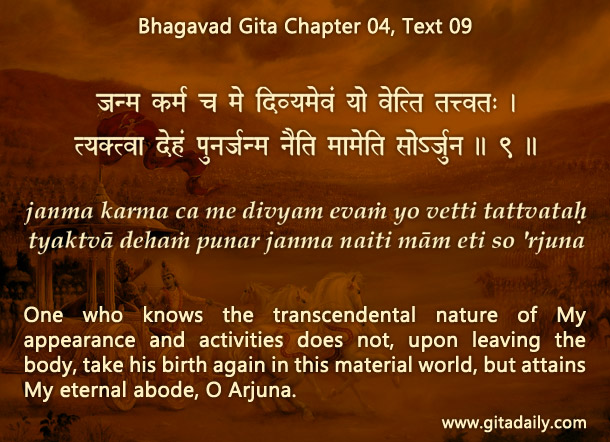Among the oft-quoted verses of the Bhagavad-gita are those describing God’s periodic descent (04.07-08): Whenever adharma predominates, he descends and re-establishes dharma, cosmic order.
Still, just as water naturally flows downwards, the material world naturally gravitates towards disorder. And God descends not to change the basic nature of things, but to change the basic orientation of our consciousness from material to spiritual. This purpose of his descent is conveyed in the next verse (04.09): When we understand and become attracted to his transcendentally captivating activities, we ultimately go beyond this disorder-prone world. Even before that ultimate liberation, as we become increasingly attracted to him, our consciousness manifests its fullest potential, in committed and competent service to him and to all living beings in relationship with him.
The opportunity for elevation of consciousness is the legacy that God leaves behind even after he leaves the world and even after the order he has established leaves the world because of time’s inexorable influence. So, the divine descent is ultimately meant to inspire a human ascent.
As long as we expect God to establish order in this world, we remain unsure of his protection amidst future disorders. And our devotion to him remains unsteady.
But once we understand the lasting purpose of his descent, we focus not on expecting outer order, but on endeavoring to absorb our consciousness in him. As our consciousness becomes steadily sheltered in him, we realize that he is always with us in his indwelling presence. Thus, we open ourselves to his guidance for finding a way ahead in our service to him, amidst both outer order and disorder. And our inner harmonization with the divine comprises the most durable order – an order that also empowers us to do our part, small or big, in establishing outer order.
To know more about this verse, please click on the image
Explanation of article:
Podcast:


Leave A Comment